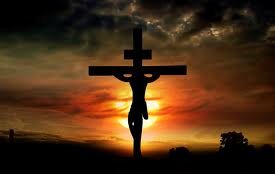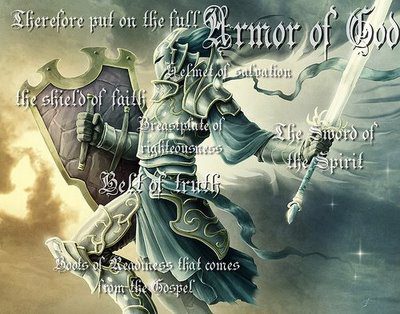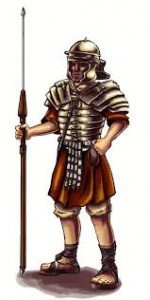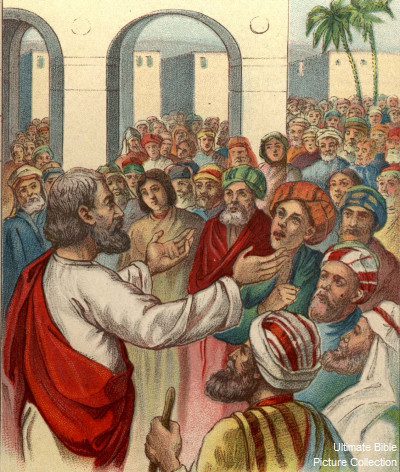“Listen carefully, all of you…
Acts 2:
Peter’s Sermon at Pentecost
14 But Peter, standing with the eleven, lifted up his voice and addressed them: “Men of Judea and all who dwell in Jerusalem, let this be known to you, and give ear to my words. 15 For these people are not drunk, as you suppose, since it is only the third hour of the day. [That is, 9 a.m.]
16 But this is what was uttered through the prophet Joel:
The Spirit echos God’s voice through the Prophet Joel.
IF God speaks to us through the Prophets of the Old Testament, do we then seek to understand how God warns us even now of the refinement to come?
Peter spoke to these men of Judea of what is written in the Prophets centuries earlier. By the Spirit, Peter then preaches the Gospel: Jesus IS the fulfillment of scripture. He IS the Messiah of God!
“LISTEN,” Peter instructs. This moment in the spectrum of God’s eternal time is important to your eternal soul. You know the scripture… (Do you?) … here is how God the Father used Jesus the Son as the Sacrifice for our sins.
22 “Men of Israel, hear these words:
Jesus of Nazareth, a man attested to you by God with mighty works and wonders and signs that God did through him in your midst, as you yourselves know— 23 this Jesus, delivered up according to the definite plan and foreknowledge of God, you crucified and killed by the hands of lawless men.
24 God raised him up, loosing the pangs of death, because it was not possible for him to be held by it.
Peter is saying through the Spirit, ‘YOU crucified the Very Son of God!’ Yet even though you did, it was God’s plan. AND God raised Jesus from death!
IMPOSSIBLE; yet NOT for GOD.The SON of GOD cannot be held even by death.
Peter then continues by the Spirit to point to the proof of Scripture, referring to David from a Kingdom a thousand years earlier.
29 “Brothers, I may say to you with confidence about the patriarch David that he both died and was buried, and his tomb is with us to this day. 30 Being therefore a prophet, and knowing that God had sworn with an oath to him that he would set one of his descendants on his throne, 31 he foresaw and spoke about the resurrection of the Christ, that he was not abandoned to Hades, nor did his flesh see corruption.
32 This Jesus God raised up, and of that we all are witnesses.
33 Being therefore exalted at the right hand of God, and having received from the Father the promise of the Holy Spirit, he has poured out this that you yourselves are seeing and hearing.
THINK about this, Peter instructs. David predicted this of Jesus, his descendant.
34 For David did not ascend into the heavens, but he himself says,
“‘The Lord said to my Lord,
“Sit at my right hand,
35 until I make your enemies your footstool.”’
Jesus frequently referred to himself as, ‘Son of Man;’ literally meaning a ‘son of Adam.’ Jesus, through the womb of Mary (God incarnate) was a son of man, just like me… just like you.
Jews (like us, so often overlooking our sin and remembering only the heritage of our forefathers) often referred to themselves as: Sons of Abraham, or Sons of Moses, or Sons of David.
Many of us are proud of our heritage of birthright. We hide our heritage that SIN came into this world as Sons of Adam.
Jesus came into the world so that we might have a new heritage to a sinless second Adam.
Remember: ‘Israel is God’s new name for Jacob. Remember: ‘Judah’ is a son of Jacob (not just the place of Jerusalem). Peter speaks to these CHOSEN men as chosen followers of the Living God. Peter preaches why WE, chosen by God, must bow down to Christ Jesus, the ONE risen from death by God the Father.
36 Let all the house of Israel therefore know for certain that God has made him both Lord and Christ, this Jesus whom you crucified.”
37 Now when they heard this they were cut to the heart, and said to Peter and the rest of the apostles, “Brothers, what shall we do?”
What will YOU DO, to make Jesus your Lord?
(It is not enough just to say so, while you continue to live in the ways of the wickedness of the world.)
38 And Peter said to them, “Repent and be baptized every one of you in the name of Jesus Christ for the forgiveness of your sins, and you will receive the gift of the Holy Spirit.
39 For the promise is for you and for your children and for all who are far off, everyone whom the Lord our God calls to himself.”
40 And with many other words he bore witness and continued to exhort them, saying, “Save yourselves from this crooked generation.”
41 So those who received his word were baptized, and there were added that day about three thousand souls.
We are sorry that Jesus had to go to the Cross for our sins. What must we do?
“Repent and be baptized…”
Repent: to change one’s mind for better, heartily to amend with abhorrence of one’s past sins
Baptized: the act of baptizing produces a permanent change…
Have you truly repented of your daily sin?
Have you been ‘permanently changed’ in the name of Jesus Christ?
What must you do?


 14 Stand therefore, having fastened on the belt of truth, and having put on the breastplate of righteousness, 15 and, as shoes for your feet, having put on the readiness given by the gospel of peace.
14 Stand therefore, having fastened on the belt of truth, and having put on the breastplate of righteousness, 15 and, as shoes for your feet, having put on the readiness given by the gospel of peace.